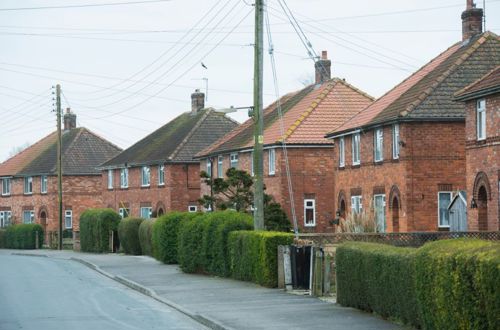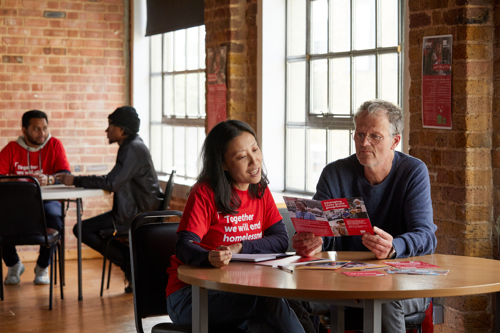Everyone should have the right to a safe and stable home to call their own. But for many people, rising costs and stagnant wages mean they are priced out. Forced to pay unaffordable rents to private landlords, put up with poorly maintained properties or pushed into homelessness.
Social housing offers a lifeline for people who can’t afford to buy or rent a home privately. It gives people access to decent, quality homes at an affordable price.
Social housing provides affordable homes for people who are on lower incomes, in vulnerable situations or who have specialist housing needs. Social homes are around 50% cheaper and offer more security than privately rented housing.
You might also hear social housing called ‘public housing’ or ‘council housing’. A council house is a type of social housing owned by the council.
The first social housing in the UK was built in the 19th Century with early but small scale examples of housing association and council housebuilding. Council house building at scale got underway just after the First World War, thanks to the passing of the 1919 Housing and Planning Act. The Act set out an ambitious plan to build 500,000 new homes and was backed by government subsidies to help finance construction. By the end of the 1930s over a million social homes had been built, housing around 10% of the population. Building continued at an impressive rate throughout the next decades and into the 1980s.
In 1980, the Right to Buy policy was introduced, allowing people to buy their social home from the council at a discounted price. During this time, new restrictions for building and managing social housing also came into effect. This made building social homes more difficult and meant less new homes were being built.
Now, after decades of cuts to social housing funding, homes are being sold off faster than they can be replaced. Demand is increasing and waiting lists are growing. Currently over 1.5 million households are waiting for a home. Some of these people may have to wait as long as 20 years.
Over 60% of social housing in the UK is owned by housing associations. These are independent, not-for-profit organisations that aim to provide low-cost housing for people that need it. This includes social housing, affordable housing and shared-ownership options.
Local councils also provide social housing. Both councils and housing associations act as landlords, with tenants paying rent directly to them. They are responsible for managing and maintaining their properties, and ensuring people are given a home that meets their needs.

Stable and affordable housing is crucial if we want to build thriving communities. Research shows that a secure home can help to improve health and wellbeing, reduce unemployment and boost educational performance. This isn’t just good for individuals, it benefits society as a whole too.
But the reality is there just aren't enough affordable homes. The UK is currently facing a chronic social housing shortage. In the last ten years we’ve lost 177,487 social homes and building is at its lowest rate in decades. This has left over a million households stuck on council waiting lists hoping for the opportunity of a safe home.
Simon knows the value of a social home first hand. Crisis helped him move into one after he was evicted from his family home. His mum had passed away and he’d asked to take over the tenancy, but the landlord increased the rent so high that Simon couldn’t afford it.
He thinks the government needs to put more money into housing to fix this broken system: “We need to prioritise housing over and above everything else. The Government needs to take action. The press needs to take action. The media need to take action. More needs to be done to help private tenants. More needs to be done to force councils to build social housing.”
To apply for social housing you need to join your local council’s housing register or go directly to the housing association. If your application is accepted, you’ll then be put on a waiting list of people in need of a home.
Applications are prioritised by urgency and each council has its own policies on who is eligible for priority homes. Due to low supply and high demand for social housing, being on the waiting list is not a guarantee you’ll get a home. People can wait many months or even years for a suitable property to be offered to them. Some people may never be offered a home at all.

We’re demanding action from the government and campaigning for more low-cost housing to be built. We need 90,000 new social homes each year to meet housing needs. However, a serious lack of funding means that currently only around 10,000 are being built. We must do better.
If you’re facing homelessness alone, we’re here to help. We’ll work with you to help you find a suitable home, supporting and guiding you through every step. We can also help with making sure you have access to the right support and benefits, as well as support with training, qualifications and personal wellbeing.